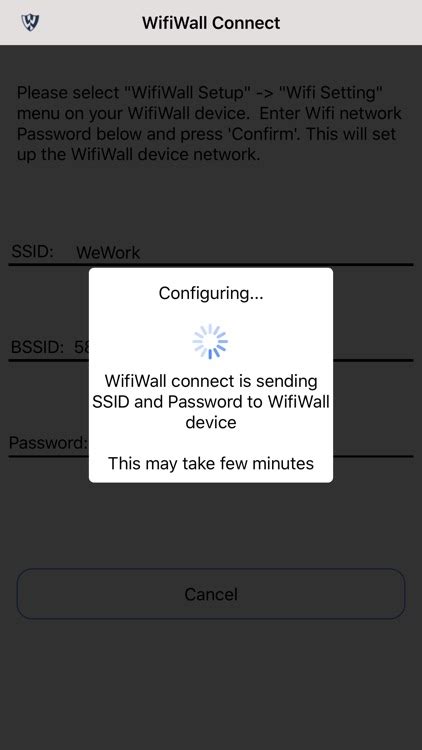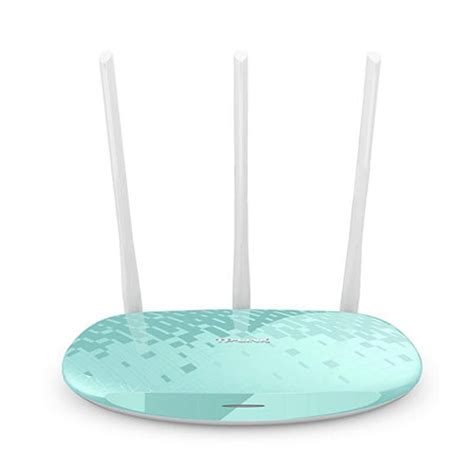What is WiFiWall?
WiFiWall is an innovative security solution that provides an extra layer of protection for wireless networks. It is designed to detect and prevent unauthorized access, malware infections, and other types of cyberattacks. Unlike traditional security measures that rely on software-based solutions, WiFiWall takes a hardware-based approach, making it more effective and efficient in combating cyber threats.
How Does WiFiWall Work?
At the core of WiFiWall’s functionality lies its advanced hardware architecture. The technology utilizes a combination of specialized processors, memory modules, and security algorithms to create a robust defense against cyberattacks. When data passes through the WiFiWall device, it undergoes a series of security checks and validations to ensure its integrity and authenticity.
| Feature | Description |
|---|---|
| Deep Packet Inspection | WiFiWall performs a thorough analysis of network traffic, examining each data packet for potential threats. |
| Real-time Threat Detection | The technology employs machine learning algorithms to identify and flag suspicious activities in real-time. |
| Automated Threat Response | Upon detecting a threat, WiFiWall automatically takes action to mitigate the risk, such as blocking the malicious traffic or isolating the affected devices. |
| Scalable Architecture | WiFiWall is designed to scale seamlessly, making it suitable for networks of all sizes, from small home networks to large enterprise environments. |
Benefits of WiFiWall
The implementation of WiFiWall technology brings numerous benefits to organizations and individuals seeking to enhance their wireless network security. Some of the key advantages include:
1. Enhanced Security
WiFiWall provides a robust defense against a wide range of cyber threats, including:
- Unauthorized access attempts
- Malware infections
- Denial-of-service attacks
- Man-in-the-middle attacks
- Data breaches
By employing advanced security algorithms and real-time threat detection, WiFiWall significantly reduces the risk of successful cyberattacks.
2. Improved Network Performance
Traditional software-based security solutions often introduce latency and degrade network performance. In contrast, WiFiWall’s hardware-based approach ensures minimal impact on network speed and reliability. By offloading security functions to dedicated hardware, WiFiWall allows the network to operate at optimal levels while maintaining a high level of protection.
3. Easy Integration
WiFiWall is designed to seamlessly integrate with existing network infrastructure. It does not require extensive modifications or complex configurations, making it easy to deploy and manage. The technology is compatible with a wide range of wireless devices and supports various network protocols, ensuring a smooth transition and minimal disruption to ongoing operations.
4. Cost-effective Solution
Implementing effective cybersecurity measures can be a costly endeavor for organizations. However, WiFiWall offers a cost-effective solution by consolidating multiple security functions into a single hardware device. This eliminates the need for multiple software licenses and reduces the overall cost of ownership. Additionally, the automated threat response capabilities of WiFiWall minimize the need for manual intervention, saving time and resources.

Real-world Applications
WiFiWall technology has found applications across various industries and sectors. Let’s explore a few real-world scenarios where WiFiWall has proven to be invaluable:
Healthcare
In the healthcare industry, protecting sensitive patient data is of utmost importance. WiFiWall has been deployed in hospitals and clinics to secure wireless networks and prevent unauthorized access to electronic health records (EHRs). By ensuring the confidentiality and integrity of patient information, WiFiWall helps healthcare providers comply with stringent data protection regulations, such as HIPAA.
Education
Educational institutions, such as schools and universities, rely heavily on wireless networks to facilitate learning and collaboration. However, these networks are often targeted by cybercriminals seeking to exploit vulnerabilities. WiFiWall has been implemented in educational settings to safeguard student and faculty data, prevent network disruptions, and maintain a secure learning environment.
Retail
In the retail industry, wireless networks are used for various purposes, including point-of-sale transactions, inventory management, and customer engagement. WiFiWall has been deployed in retail stores to protect against data breaches and ensure the security of customer information. By preventing unauthorized access to payment systems and securing wireless communication channels, WiFiWall helps retailers maintain the trust of their customers and avoid costly data breaches.

Future Developments
As cyber threats continue to evolve and become more sophisticated, the development of WiFiWall technology remains an ongoing process. Researchers and security experts are continuously working on enhancing the capabilities of WiFiWall to stay ahead of emerging threats. Some of the future developments in WiFiWall technology include:
Integration with AI and Machine Learning
The integration of artificial intelligence (AI) and machine learning algorithms into WiFiWall technology holds great promise. By leveraging the power of AI, WiFiWall can improve its ability to detect and respond to previously unknown threats. Machine learning models can be trained on vast amounts of network data to identify patterns and anomalies indicative of cyberattacks, enabling proactive defense measures.
Blockchain-based Security
The incorporation of blockchain technology into WiFiWall is another area of active research. Blockchain’s decentralized and immutable nature can be leveraged to create tamper-proof logs of network activities, ensuring the integrity and auditability of security events. Blockchain-based authentication mechanisms can also enhance the security of wireless networks by providing a secure and transparent way to manage access control.
IoT Security
As the Internet of Things (IoT) continues to grow, securing IoT devices and their wireless communications becomes increasingly critical. WiFiWall technology can be adapted to address the unique security challenges posed by IoT devices. By implementing WiFiWall at the network edge, it can protect IoT devices from unauthorized access, malware infections, and data breaches, ensuring the security and privacy of IoT ecosystems.

Frequently Asked Questions (FAQ)
-
Q: Is WiFiWall compatible with all wireless devices?
A: WiFiWall is designed to be compatible with a wide range of wireless devices and supports various network protocols. However, it is always recommended to consult with the WiFiWall provider to ensure compatibility with your specific devices and network setup. -
Q: How does WiFiWall handle false positives?
A: WiFiWall employs advanced algorithms and machine learning techniques to minimize the occurrence of false positives. In the event of a false positive, WiFiWall provides mechanisms for administrators to review and whitelist legitimate traffic, ensuring minimal disruption to network operations. -
Q: Can WiFiWall protect against insider threats?
A: While WiFiWall is primarily designed to protect against external cyber threats, it can also help mitigate insider threats by enforcing strict access controls and monitoring network activities. However, it is important to note that insider threats often require a multi-faceted approach that includes employee training, security policies, and monitoring of user behavior. -
Q: How often does WiFiWall require updates and maintenance?
A: WiFiWall providers typically offer regular updates and patches to ensure the technology remains effective against the latest cyber threats. The frequency of updates may vary depending on the provider and the specific deployment scenario. It is crucial to work closely with your WiFiWall provider to establish a maintenance schedule that meets your organization’s security needs. -
Q: Can WiFiWall be integrated with existing security solutions?
A: Yes, WiFiWall can be integrated with other security solutions, such as firewalls, intrusion detection systems (IDS), and security information and event management (SIEM) tools. This integration allows for a comprehensive and layered approach to cybersecurity, providing a more robust defense against cyber threats.
Conclusion
In conclusion, WiFiWall technology represents a significant advancement in the field of wireless network security. By providing a hardware-based solution that combines deep packet inspection, real-time threat detection, and automated threat response, WiFiWall offers a comprehensive and effective defense against cyberattacks. The benefits of WiFiWall, including enhanced security, improved network performance, easy integration, and cost-effectiveness, make it an attractive option for organizations and individuals seeking to protect their wireless networks.
As cyber threats continue to evolve, the development of WiFiWall technology remains an ongoing process. The integration of AI, machine learning, blockchain, and IoT security features into WiFiWall holds great promise for the future of wireless network security. By staying at the forefront of technological advancements, WiFiWall is poised to remain a reliable and robust solution in the fight against cyberattacks.
In today’s digital landscape, where wireless networks have become an integral part of our lives, the importance of effective cybersecurity measures cannot be overstated. WiFiWall technology provides a powerful tool to safeguard our digital assets, protect sensitive information, and maintain the integrity of our wireless networks. By embracing WiFiWall and incorporating it into our cybersecurity strategies, we can take a proactive step towards a more secure and resilient digital future.

No responses yet